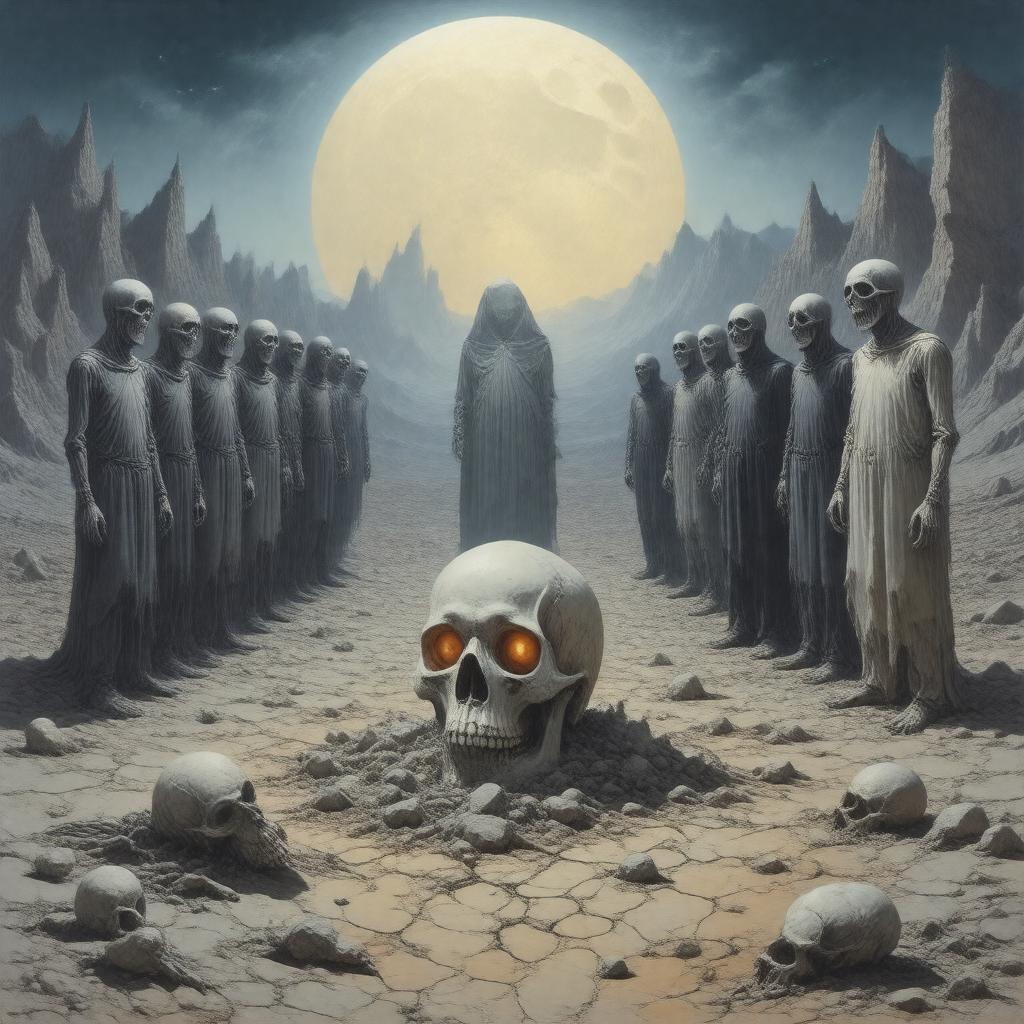Prompt
"Generate an image of a desolate, post-apocalyptic landscape with a group of faceless, hollow figures gathered around a empty, glowing-eyed skull, surrounded by a bleak, barren wasteland, evoking a sense of spiritual desolation and existential despair, in a haunting, surrealist style."

